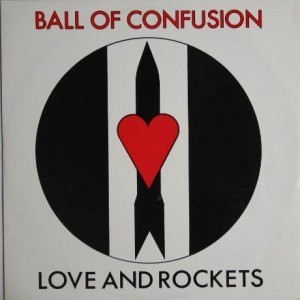Tullian Tchividjian's Blog, page 13
October 3, 2013
I’m Guilty Too
In an interview that Jonathan Merritt of Religion News Services conducted with me regarding my new book One Way Love: Inexhaustible Grace for an Exhausted World, one of the questions he asked was:
What are the ways in which you–yes you, as a clergy person–been complicit in perpetuating this system (works righteousness)?
I answered, in part, by saying:
I’m so embarrassed by many of the sermons I preached early on. I wish I could go back and apologize to all the people who heard them. My primary concern at that time was to get people to do more, try harder, and change. The end result was stunted spiritual growth for our people because I was causing them to fix their eyes on themselves rather than on Christ.
Read the rest here.
September 30, 2013
Does Grace Make You Lazy?
 My new book, One Way Love: Inexhaustible Grace for an Exhausted World, comes out tomorrow. It is, without question, the most important book I’ve written to date. My hope and prayer is that God would use it to awaken burdened people (and that’s all of us!) to the breathtaking freedom that Jesus secured for sinners like me. Below is a short excerpt that will give you a small taste of the whole.
My new book, One Way Love: Inexhaustible Grace for an Exhausted World, comes out tomorrow. It is, without question, the most important book I’ve written to date. My hope and prayer is that God would use it to awaken burdened people (and that’s all of us!) to the breathtaking freedom that Jesus secured for sinners like me. Below is a short excerpt that will give you a small taste of the whole.
The gospel doxologically declares that because of Christ’s finished work for you, you already have all of the justification, approval, security, love, worth, meaning, and rescue you long for and look for in a thousand different people and places smaller than Jesus.
The gospel announces that God doesn’t relate to us based on our feats for Jesus but Jesus’ feats for us.
Because Jesus came to secure for us what we could never secure for ourselves, life doesn’t have to be a tireless effort to establish ourselves, justify ourselves, validate ourselves.
He came to rescue us from the slavish need to be right, rewarded, regarded, and respected. He came to relieve us of the burden we inherently feel “to get it done.”
The gospel announces that it’s not on me to ensure that the ultimate verdict on my life is pass and not fail.
This means you don’t have to transform the world to matter, you don’t have to get good grades to secure your own worth, you don’t have to be a success to justify your existence.
Because Jesus was strong for you, you’re free to be weak; Because Jesus was Someone, you’re free to be no one; Because Jesus was extraordinary, you’re free to be ordinary; Because Jesus succeeded for you, you’re free to fail. Because Jesus won for you, you’re free to lose.
But hold on…wait a minute…
Doesn’t this unconditional declaration generate apathy-an “I don’t care” posture toward life?
If it’s true that Jesus paid it all, that it is finished, that my value, worth, security, freedom, justification, and so on is forever fixed, than why do anything? Doesn’t grace undercut ambition? Doesn’t the gospel weaken effort?
Understandable question.
But the truth is, gospel grace actually empowers risk-taking effort and neighbor-embracing love.
You see, the thing that prevents us from taking great risks is the fear that if we don’t succeed, we’ll lose out on something we need in order to be happy and so we live life playing our cards close to the chest…relationally, vocationally, spiritually.
We measure our investments carefully because we need a return-we’re afraid to give because it might not work out and we need it to work out.
But, because everything we need in Christ we already possess, we can take great risks, push harder, go farther, and leave it all on the field without fear. We can invest with reckless abandon because we don’t need to ensure a return of success, love, meaning, validation, and approval. We can invest freely and forcefully because we’ve been freely and forcefully invested in.
The fear of not knowing whether I’ll get a return is replaced by the freedom of knowing we already have everything: because everything I need, in Christ I already possess, I’m now free to do everything for you without needing you to do anything for me.
I can now actively spend my life giving instead of taking, going to the back instead of getting to the front, sacrificing myself for others instead of sacrificing others for myself.
The gospel alone liberates you to live a life of scandalous generosity, unrestrained sacrifice, uncommon valor, and unbounded courage.
When you don’t have anything to lose, you discover something wonderful: you’re free to take great risks without fear or reservation.
This is the difference between approaching all of life from salvation and approaching all of life for salvation; it’s the difference between approaching life from our acceptance, and not for our acceptance; from love not for love.
So, what are you going to do now that you don’t have to do anything…
September 24, 2013
Failure And One Way Love
In One Way Love: God’s Inexhaustible Grace for an Exhausted World (due out in six days), I tell a lot of personal and very revealing stories about the way grace has changed my life. The one below is perhaps the most personal. I still can’t read this without weeping.
You can pre-order the book here.
 There wasn’t one thing in particular that snapped me out of my “wild man” phase, no big crisis or single clarifying moment that inspired me to repair the damage I had done to myself, others, and my family. As humdrum as it may sound, what led me out of that rebellious period was simply the nagging sense that there had to be more to life than what I was experiencing—there had to be more to who I was than what this world was telling me. In fact, I can’t even pinpoint the exact moment when God raised this dead rebel to life. All I know is that sometime in the fall of 1993, my culminating discontent with life made me decide to start going back to church.
There wasn’t one thing in particular that snapped me out of my “wild man” phase, no big crisis or single clarifying moment that inspired me to repair the damage I had done to myself, others, and my family. As humdrum as it may sound, what led me out of that rebellious period was simply the nagging sense that there had to be more to life than what I was experiencing—there had to be more to who I was than what this world was telling me. In fact, I can’t even pinpoint the exact moment when God raised this dead rebel to life. All I know is that sometime in the fall of 1993, my culminating discontent with life made me decide to start going back to church.
I was twenty-one at the time. Kim, who had been my girlfriend for two years at that point, had actually started going to church with my parents a few months earlier, and before I knew it, we were both going every week. My parents were understandably overjoyed. Their prodigal had finally come home. “For this son of mine was dead and is alive again; he was lost and is found” (Luke 15:24 NIV).
Since Kim did not grow up in a Christian home like me, this was all brand-new to her. But to me, it felt like a homecoming. Even in my unruly years, I had never really ceased to believe in God. In fact, if you had given me a theological exam at the height of my rebellion, I would’ve passed with flying colors. I was just choosing to ignore it all. Maybe it was the timing, maybe it was the circumstances, but something finally clicked, and God became real to both of us in a new and exciting way.
About three months later, in January of 1994, Kim and I got engaged. Our new faith naturally led us to take a hard look at our relationship. God was changing us, and we knew our relationship needed to change as well. After being so out of control for so long, we knew we had to adjust the way we related to each other, and the physical realm was no exception. We were both coming out of a world where sex outside of marriage was completely the norm—a norm that we had embraced—and we knew the right thing to do would be to pull back until we were married. Easier said than done!
Despite our best intentions and most earnest efforts, we slipped up three or four times during our engagement. I’ll never forget when Kim came over to my apartment one night after work and told me she was pregnant. I was devastated. Not just because the news was a shock or because I hadn’t expected to be a parent at such a young age. I was devastated because everyone who had celebrated my return “to the fold” would think the turnaround was a false alarm. I had caused my family so much pain and heartbreak with my self-absorbed shenanigans, and they had been so relieved and excited that their reckless son had finally come back; it had been the answer to years and years of prayer. I had put my parents through more than any son ever should and had asked for their forgiveness on numerous occasions. To drop this bomb might crush them all over again, and I just couldn’t bear it. I was scared, ashamed, and angry at myself for failing yet again.
Somehow we summoned the courage to go over to my mom and dad’s house the next day—Mother’s Day, believe it or not. After some awkward small talk, I asked my father if we could speak to him alone. We walked out to the driveway. Dad was standing in front of me, and Kim was by my side, shoulder to shoulder. “Dad we have something to tell you.” I burst into tears. “Kim’s pregnant.” Kim started bawling too. Next thing I knew, he was embracing both of us, me with one arm, her with the other, while we wept. He held us for ten minutes. He could see how overwhelmed we were. I can still hear his voice telling us, “It’s okay. We love you. It’s going to be okay. This child is going to be a blessing.”
Kim and I had been so excited about getting married, and now we were going to be parents as well. In addition to the embarrassment and shame involved, we were grieving the happy expectation that we’d have a few years, just the two of us, before starting a family. We were in a state of shock. Yet my father did not condemn or lecture us, even though he had every right to do so. Instead, he comforted us. More than that, he gave us good news. He told us that while the circumstances clearly weren’t ideal, this was going to turn out just fine. This baby was going to be a blessing to both of us and a gift to the whole family. Every time Kim and I look at our oldest son (now eighteen), we realize afresh that my dad was absolutely right that day.
The whole situation was wrapped in grace: I deserved his reproach and disapproval—premarital sex resulting in unexpected pregnancy is no father’s dream for his child—yet his gracious response assured me that he not only wasn’t crushed, his love for me was stronger than ever. When I told him (through many tears) how sorry I was for once again letting him down, he simply hushed me by hugging me tighter and saying over and over again, “It’s okay. I love you. It’s okay. I love you.” At that moment in the driveway, when I rightly deserved my dad’s disappointment, he assured me of his delight. Even now it is hard to put into words the emotional relief I felt. Lifesaving is not too strong a word. I thank God with every fiber of my being that He put me in a family where I was surrounded by such one-way love.
The love my father showed me that day is not a one-to-one approximation of God’s one-way love for you and me—nothing is! But this act of grace served as an accurate reflection of that one true Act of Grace, or one way love, to which all others point. That is, he treated me in a way that was analogous to how God treats you and me. He was not God, of course, but like many fathers, he did play a similar role in my life: someone in authority who showed me love in the midst of deserved judgment. And like that One True Act of Grace, my father’s forgiveness and love changed me forever.
September 19, 2013
When The Good News Becomes Bad
Speaking of God’s word in two words, Scott Clark wrote a very helpful piece on how the good news of the gospel can quickly turn into bad news when we confuse God’s law with God’s gospel. He writes:
The word “Gospel” is so familiar and frequently used that it is possible to lose sight of its genuine meaning–”good news.” This question is vital as we face a series of movements within our churches which seek to redefine the meaning of the Gospel. In each case we are being offered “another Gospel” (Gal 1:6). The Good News of Christ faces a threat on the order of that faced by the Galatian Christians.
Read the rest here.
September 16, 2013
God’s Word In Two Words
 The distinction between law and gospel may seem irrelevantly abstract—something that would fascinate only the theologian or linguist—but serious life confusion happens when we confuse law and gospel, when we fail to understand their unique job descriptions.
The distinction between law and gospel may seem irrelevantly abstract—something that would fascinate only the theologian or linguist—but serious life confusion happens when we confuse law and gospel, when we fail to understand their unique job descriptions.
Theologian Gerhard Ebeling rightly observed that “the failure to distinguish the law and the gospel always means the abandonment of the gospel.” And John Calvin’s protégé, Theodore Beza, went so far as to say, “Ignorance of this distinction between Law and Gospel is one of the principal sources of the abuses which corrupted and still corrupt Christianity.” A confusion of law and gospel is the main contributor to moralism in the church simply because the law gets softened into “helpful tips for practical living”, instead of God’s unwavering demand for absolute perfection. While the gospel gets hardened into a set of moral and social demands that “we must live out”, instead of God’s unconditional declaration that “God justifies the ungodly.” As my friend Jono Linebaugh says, “God doesn’t serve mixed drinks. The divine cocktail is not law mixed with gospel. God serves two separate shots: law then gospel.”
So what are the “job descriptions” of God’s two words?
This is what I write about in this months Christianity Today.
September 11, 2013
What Binds Up Broken Relationships?
 It doesn’t matter where you live, what you do for a living, or how you spend your free time, you have experienced, are experiencing, or will experience the wreckage of broken relationships. Infidelity, divorce, misunderstanding, fragmented workplaces, even death…these things touch us all, even in the “safe haven” of church. Broken relationships are everywhere.
It doesn’t matter where you live, what you do for a living, or how you spend your free time, you have experienced, are experiencing, or will experience the wreckage of broken relationships. Infidelity, divorce, misunderstanding, fragmented workplaces, even death…these things touch us all, even in the “safe haven” of church. Broken relationships are everywhere.
But what breaks them? And how can they be restored? This is the question taken up by James in the fourth chapter of his epistle. James is a “horizontal” book, in that it is primarily concerned with the love that people ought to have and show for each other. Of course, as I’ve said before, the horizontal hinges on the vertical: where there is no faith, there can be no love.
Listen to what James says: “What causes fights and quarrels among you? Don’t they come from your desires that battle within you? You desire but do not have, so you kill. You covet but you cannot get what you want, so you quarrel and fight. You do not have because you do not ask God. When you ask, you do not receive, because you ask with wrong motives, that you may spend what you get on your pleasures” (4:1-4).
I can almost guarantee that you do not believe this. Not for one minute.
Read the rest here.
September 6, 2013
Robert Farrar Capon (1925-2013)
For those who are unfamiliar with who he was, Capon was an author, theologian, food critic, and Episcopal priest who is often quoted on this blog. Capon was, in the words of my friend David Zahl, “an unwavering advocate for grace in its most radical and Christocentric expression.” For every head-scratching page that Capon wrote, he would write a mind-blowingly insightful one. Some of the best paragraphs I’ve ever read on grace come from Capon. He, no doubt, held some wild ideas. So, as with anyone, you have to chew off the meat and spit out the bones. But it’s worth it.
My first exposure to Capon came about six or seven years ago when I was considering preaching through the parables (which I never ended up doing, by the way). One of my former seminary professors suggested that I pick up Capon’s thick book Kingdom, Grace, Judgement: Paradox, Outrage, and Vindication in the Parables of Jesus. He warned me that I would not agree with everything Capon wrote but he insisted that it would nevertheless benefit my study of the parables greatly. It sat on my shelf for a while until one of my friends asked me if I owned the book. I didn’t think I did and so I ordered it. After I ordered it and went to stock it on my bookshelf, I realized I already had it (You ever done that?).
As a way to pay small tribute to Capon, I’m posting some of my favorite paragraphs that he wrote taken from some of his many books. They are so good that I included a few of them in One Way Love.
From Kingdom, Grace, Judgement: Paradox, Outrage, and Vindication in the Parables of Jesus:
What role have I left for religion? None. And I have left none because the Gospel of our Lord and Savior Jesus Christ leaves none. Christianity is not a religion; it is the announcement of the end of religion.
Religion consists of all the things (believing, behaving, worshiping, sacrificing) the human race has ever thought it had to do to get right with God. About those things, Christianity has only two comments to make. The first is that none of them ever had the least chance of doing the trick: the blood of bulls and goats can never take away sins (see the Epistle to the Hebrews) and no effort of ours to keep the law of God can ever finally succeed (see the Epistle to the Romans). The second is that everything religion tried (and failed) to do has been perfectly done, once and for all, by Jesus in his death and resurrection. For Christians, therefore, the entire religion shop has been closed, boarded up, and forgotten. The church is not in the religion business. It never has been and it never will be, in spite of all the ecclesiastical turkeys through two thousand years who have acted as if religion was their stock in trade. The church, instead, is in the Gospel-proclaiming business. It is not here to bring the world the bad news that God will think kindly about us only after we have gone through certain creedal, liturgical and ethical wickets; it is here to bring the world the Good News that “while we were yet sinners, Christ died for the ungodly.” It is here, in short, for no religious purpose at all, only to announce the Gospel of free grace.
The Reformation was a time when men went blind, staggering drunk because they had discovered, in the dusty basement of late medievalism, a whole cellar full of fifteen-hundred-year-old, two-hundred proof Grace–bottle after bottle of pure distilate of Scripture, one sip of which would convince anyone that God saves us single-handedly. The word of the Gospel–after all those centuries of trying to lift yourself into heaven by worrying about the perfection of your bootstraps–suddenly turned out to be a flat announcement that the saved were home before they started…Grace has to be drunk straight: no water, no ice, and certainly no ginger ale; neither goodness, nor badness, nor the flowers that bloom in the spring of super spirituality could be allowed to enter into the case.
From The Foolishness of Preaching:
I think good preachers should be like bad kids. They ought to be naughty enough to tiptoe up on dozing congregations, steal their bottles of religion pills…and flush them all down the drain. The church, by and large, has drugged itself into thinking that proper human behavior is the key to its relationship with God. What preachers need to do is force it to go cold turkey with nothing but the word of the cross-and then be brave enough to stick around while [the congregation] goes through the inevitable withdrawal symptoms. But preachers can’t be that naughty or brave unless they’re free from their own need for the dope of acceptance. And they wont be free of their need until they can trust the God who has already accepted them, in advance and dead as door-nails, in Jesus. Ergo, the absolute indispensability of trust in Jesus’ passion. Unless the faith of preachers is in that alone-and not in any other person, ecclesiastical institution, theological system, moral prescription, or master recipe for human loveliness-they will be of very little use in the pulpit.
From The Foolishness of Preaching:
If we are ever to enter fully into the glorious liberty of the children of God, we are going to have to spend more time thinking about freedom than we do. The church, by and large, has had a poor record of encouraging freedom. It has spent so much time inculcating in us the fear of making mistakes that it has made us like ill-taught piano students: we play our pieces, but we never really hear them because our main concern is not to make music but to avoid some flub that will get us in trouble. The church, having put itself in loco parentis (in the place of a parent), has been so afraid we will lose sight of the need to do it right that it has made us care more about how we look than about who Jesus is-made us act more like subjects of a police state than fellow citizens of the saints.
From Between Noon and Three:
Saint Paul has not said to you, “Think how it would be if there were no condemnation”; he has said, “There is therefore now none.” He has made an unconditional statement, not a conditional one-a flat assertion, not a parabolic one. He has not said, “God has done this and that and the other thing; and if by dint of imagination you can manage to pull it all together, you may be able to experience a little solace in the prison of your days.” No. He has simply said, “You are free. Your services are no longer required. The salt mine has been closed. You have fallen under the ultimate statute of limitation. You are out from under everything: Shame, Guilt, Blame. It all rolls off your back like rain off a tombstone.”
It is essential that you see this clearly. The Apostle is saying that you and I have been sprung. Right now; not next week or at the end of the world. And unconditionally, with no probation officer to report to. But that means that we have finally come face to face with the one question we have scrupulously ducked every time it got within a mile of us: You are free. What do you plan to do? One of the problems with any authentic pronouncement of the gospel is that it introduces us to freedom.
From The Romance of the Word:
The Epistle to the Romans has sat around in the church since the first century like a bomb ticking away the death of religion; and every time it’s been picked up, the ear-splitting freedom in it has gone off with a roar.
The only sad thing is that the church as an institution has spent most of its time playing bomb squad and trying to defuse it. For your comfort, though, it can’t be done. Your freedom remains as close to your life as Jesus and as available to your understanding as the nearest copy. Like Augustine, therefore, tolle lege, take and read: tolle the one, lege the other-and then hold onto your hat. Compared to that explosion, the clap of doom sounds like a cap pistol.
And this prayer, brilliantly articulating our grace-averse hearts from Between Noon And Three:
Lord, please restore to us the comfort of merit and demerit. Show us that there is at least something we can do. Tell us that at the end of the day there will at least be one redeeming card of our very own. Lord, if it is not too much to ask, send us to bed with a few shreds of self-respect upon which we can congratulate ourselves. But whatever you do, do not preach grace. Give us something to do, anything; but spare us the indignity of this indiscriminate acceptance.
September 2, 2013
Grace And Personal Identity
Below is an excerpt from my forthcoming book One Way Love: Inexhaustible Grace for an Exhausted World. It comes out October 1. You can pre-order it here.
 In 2007, the New York-based website Gawker.com named John Fitzgerald Page “The Worst Person in the World.”
In 2007, the New York-based website Gawker.com named John Fitzgerald Page “The Worst Person in the World.”
John, a young professional in Atlanta at the time, was awarded the dubious title after an exchange he had with a young woman on Match.com, an online dating site, was made public. The young lady in question had made an overture by “winking” at John, admitting in retrospect that she probably should have thought twice “considering his screen name was ‘IvyLeagueAlum.’” John responded with a short, introductory message, listing several facts about himself, some relevant, some less so (height, weight, schools attended, fitness regimen). He also asked a couple of pointed questions of his new admirer—where she had gone to school, the kind of products she enjoyed, and what activities she currently participated in to stay in shape. He seemed especially concerned that his would-be date was not misrepresenting herself physically. John had apparently been “deceived before by inaccurate representations”—given the circumstances, an honest concern. More problematic was the self-satisfied tone in which his concern was expressed.
Something about his message must have rubbed its recipient the wrong way, as she replied with a perfunctory “No thanks.” Presumably the end of the story. But a spurned John shot back:
I think you forgot how this works. You hit on me, and therefore have to impress ME and pass MY criteria and standards—not vice versa. Six pictures of just your head and your inability to answer a simple question lets me know one thing. You are not in shape. I am a trainer on the side, in fact, I am heading to the gym in 26 minutes! So next time you meet a guy of my caliber, instead of trying to turn it around, just get to the gym! I will even give you one free training session, so you don’t blow it with the next 8.9 on Hot or Not, Ivy League grad, Mensa member, can bench/ squat/leg press over 1200 lbs., has had lunch with the secretary of defense, has an MBA from the top school in the country, drives a Beemer convertible, has been in 14 major motion pictures, was in Jezebel’s Best dressed, etc. Oh, that is right, there aren’t any more of those!
In the face of rejection, poor John defended himself. In fact, he did more than that; he justified himself. He listed his achievements, his attributes and accolades—some of which are, on the surface, impressive. John’s problem isn’t his résumé; it’s what he thinks about his résumé. He used it to justify his existence, leaning on it for righteousness, and therefore, life and love. Yet no one can love a résumé, and not just because we can know a million things about a person and still not know them. No, love that depends on certain standards of performance isn’t really love at all. It’s more like emotional bartering, a two-way dynamic if ever there was one. It alienates.
We might like to think John is an extreme case, but he’s not—at least not as much as we might wish he were. Maybe there is someone in your life who makes you feel insecure; someone whose very existence you find to be threatening—a walking judgment, if you will. Maybe you find yourself dropping names around that person, talking about things you think might impress them. We may not (hopefully) be as brazen or impulsive as John Fitzgerald Page in flaunting our advantages or achievements, but all of us are performancists in some arena, wired for control and proving.
The truth is, narratives of self-justification burble beneath more of our relationships and endeavors than we would care to admit. In fact, the need to justify ourselves drives an enormous amount of daily life, especially the exhausting parts.
The area of personal identity is a place where the rubber of grace meets the road of everyday life in an especially palpable way. If an identity based on “works of the law” looks like John Fitzgerald Page, what might one based on the one way love of God?
For an answer, we need look no further than the apostle Paul, who once wrote a letter not too dissimilar from that of John Fitzgerald Page:
If anyone else thinks he has reason for confidence in the flesh, I have more: circumcised on the eighth day, of the people of Israel, of the tribe of Benjamin, a Hebrew of Hebrews; as to the law, a Pharisee; as to zeal, a persecutor of the church; as to righteousness under the law, blameless. (Phil. 3:4-6)
Paul, it would seem, had plenty to be proud of. His pedigree, his track record, his religious standing were all impeccable. If he had wanted to justify his existence, he would have had a comparably solid basis on which to do so—the first-century Jewish equivalent of blue blood, Ivy League, Fortune 500 status. But unlike John Fitzgerald Page, Paul doesn’t end there. Or you might say, that’s exactly where he ends:
But whatever gain I had, I counted as loss for the sake of Christ. Indeed, I count everything as loss because of the surpassing worth of knowing Christ Jesus my Lord. For his sake I have suffered the loss of all things and count them as rubbish, in order that I may gain Christ and be found in him, not having a righteousness of my own that comes from the law, but that which comes through faith in Christ, the righteousness from God that depends on faith. (Phil. 3:7-9)
The contrast Paul makes here is between a “righteousness of my own that comes from the law” and “the righteousness from God that depends on faith [in Christ].” One is earned, and the other is bestowed, or you might say one is a paycheck while the other is a gift. One is based on our own efforts and attributes; the other is based on God’s. One has to do with getting, the other with receiving; one with action, the other with faith. The funny thing is that while the latter is so clearly preferable to the former, we almost always choose the wrong one!
 Paul’s identity is anchored in Christ’s accomplishment, not his own; Christ’s strength, not his; Christ’s pedigree and track record, not his own; Christ’s victory, not Paul’s. He knows that who he really is has nothing to do with him at all–rather, it has everything to do with what Jesus had done for him.
Paul’s identity is anchored in Christ’s accomplishment, not his own; Christ’s strength, not his; Christ’s pedigree and track record, not his own; Christ’s victory, not Paul’s. He knows that who he really is has nothing to do with him at all–rather, it has everything to do with what Jesus had done for him.
Achievements, reputations, strengths, weaknesses, family backgrounds, education, looks, and so on—these things still exist, of course, but only for their own sake. They are divested of the weight they were never meant to bear in the first place, and as such, they can be enjoyed or appreciated without being worshipped. In fact, Paul counts them as loss, which is perhaps a little ironic, since most of the things we tend to define ourselves by are things we’re going to lose anyway, if not through aging (beauty, strength, smarts, etc.), then through death (name, wealth, regard).
An identity based in the one-way love of God does not take into account public opinion or, thankfully, even personal opinion. It is a gift from Someone who is not you. As my friend Justin Buzzard wrote recently, “The gospel doesn’t just free you from what other people think about you, it frees you from what you think about yourself.” In other words, you are not who others see you to be, and you are not who you see yourself to be; you are who God sees you to be—His beloved child, with whom He is well pleased.
August 29, 2013
Comprehend High, Communicate Low
The tendency of preachers from my neck of the woods (theologically minded, seminary trained, book readers) is to preach in such a way as to impress our seminary professors or theological heroes or favorite authors–none of whom are actually sitting in front of us as we preach. And as a result, we end up failing to connect with the very people God has called us to bring his Good News to.
I like to say that preachers are called to comprehend high and communicate low. Read, study, think, wrestle (comprehend high). But then distill everything big that you learn in easy to understand words and sentences (communicate low). As J.I. Packer has said, “God has called us to feed sheep, not giraffes.” It was Luther’s commitment to put God’s word into the everyday, average language of the ordinary person that launched the Reformation.
In other words, avoid this:
August 26, 2013
Redeeming Repetition
 One of the most common objections that those of us who are committed to preaching the gospel of grace week in and week out hear is, “Ok…I get it. Can we move on now? We hear the same thing week after week. Can we hear something different already?” Considering the way our consumeristic culture has conditioned us to always crave “what’s next”, the objection is understandable. Add to that a fundamental misunderstanding inside the church that the gospel is not for Christians but for non-Christians, and you have the perfect recipe for Christian people thinking that it’s “time to move on.”
One of the most common objections that those of us who are committed to preaching the gospel of grace week in and week out hear is, “Ok…I get it. Can we move on now? We hear the same thing week after week. Can we hear something different already?” Considering the way our consumeristic culture has conditioned us to always crave “what’s next”, the objection is understandable. Add to that a fundamental misunderstanding inside the church that the gospel is not for Christians but for non-Christians, and you have the perfect recipe for Christian people thinking that it’s “time to move on.”
Over the years I’ve come up with a variety of ways to explain to people that once God saves us he doesn’t then move us beyond the gospel, but rather more deeply into the gospel—that Christian growth is always growth into grace, not beyond it. But just recently I discovered another way to help people understand that we never, ever outgrow our need to hear the gospel.
In Galatians 5:6 Paul makes a stunning statement. He says, “For in Christ Jesus neither circumcision nor uncircumcision has any value. The only thing that counts is faith expressing itself through love.” So, the thing that matters most is faith expressing itself through love. And then in Romans 10:17 Paul makes the point that “faith comes through hearing the word about Christ.” Put these two statements together and you have what is, in my opinion, the strongest biblical argument for why we need to hear the gospel of grace week in and week out.
According to Paul, real love is impossible without faith. Faith is vertical (it’s upward)—it’s trusting that everything I need and long for, I already have because of what Jesus has accomplished for me. Love, on the other hand, is horizontal (it’s outward)—because Jesus has done everything for me (faith) I can now do everything for you without needing you to do anything for me (love). You could put it this way: love is faith worked out by us for our neighbor horizontally; faith is love worked into us from God vertically. The implication, of course, is that love is absent to the degree that faith is missing. If I’m not trusting that everything I need in Christ I already possess (lack of faith), then I will be looking to take from you rather than give to you (lack of love). I’ll be concentrating on what I need, not what you need. I’ll be looking out for me, not you.
So if we ever hope to “love our neighbor as ourselves” (which is precisely what God’s law calls for), it will depend on faith. And faith, according to Paul in Romans 10:17, depends on hearing the gospel—over and over and over again. God stokes faith through the preaching of the gospel, and since our faith needs constant stoking, the preaching of the gospel needs to be constant. As long as love is needed (which is always), faith must be fueled. And the only fuel for faith is the gospel. The logical formula, then, goes like this:
No faith = no love
No gospel = no faith
Therefore, no gospel = no love.
The preaching of the gospel alone activates faith, and faith alone activates love.
If the church is ever going to experience the kind of reformation that many of us long for, preachers are going to have to understand that they are not called to say many different things, but rather the same thing over and over in many different ways from every different text.
So preachers, do everything you can to help people understand why they will never outgrow their need to hear the gospel of grace. But don’t ever apologize for the rhythm of redemptive redundancy that should always mark your preaching week after week after week.
Tullian Tchividjian's Blog
- Tullian Tchividjian's profile
- 142 followers




